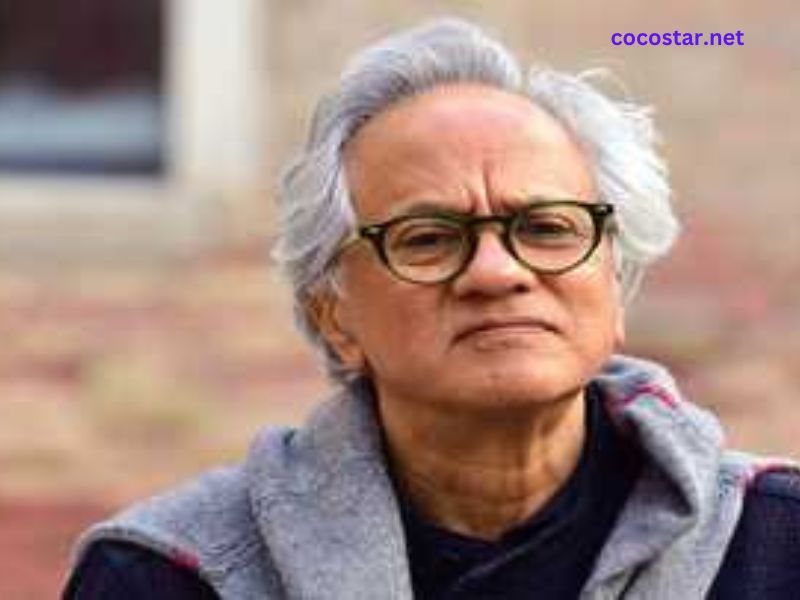The question of who holds the title of the “most powerful doctor in the world” is both intriguing and complex. While the phrase might evoke images of a singular figure wielding unmatched influence and capabilities in the medical field, the reality is far more nuanced. Power in medicine can manifest in various forms: clinical expertise, research influence, administrative authority, or public health impact. In this exploration, we will consider multiple facets of power in the medical world and highlight individuals and organizations that have made significant contributions.
The Dimensions of Power in Medicine
1. Clinical Expertise
In the realm of clinical practice, power can often be defined by expertise and the ability to save lives. Renowned surgeons, like Dr. Paul Farmer, co-founder of Partners In Health, stand out for their profound impact on patient care. Dr. Farmer dedicated his life to treating patients in impoverished regions, emphasizing the importance of social justice in health care. His ability to perform complex surgeries and provide care where it is most needed showcases the power of clinical skill coupled with a strong ethical commitment.
2. Research and Innovation
In the domain of research, individuals like Dr. Anthony Fauci have emerged as powerful figures, particularly during global health crises. As the Director of the National Institute of Allergy and Infectious Diseases (NIAID), Dr. Fauci played a pivotal role in addressing the HIV/AIDS epidemic and, more recently, the COVID-19 pandemic. His ability to influence public health policy and guide research funding makes him one of the most powerful doctors in the world, particularly in shaping responses to emerging infectious diseases.
The power of research is not limited to individual practitioners. Institutions like the Mayo Clinic, Johns Hopkins University, and the World Health Organization (WHO) also wield significant influence through their research outputs and guidelines. The WHO, in particular, plays a critical role in global health governance, directing international responses to health threats and setting standards for best practices.
3. Administrative Authority
Administrators and leaders in health organizations hold significant power as well. For example, Dr. Tedros Adhanom Ghebreyesus, the Director-General of the WHO, has been a central figure in international public health efforts. His leadership during the COVID-19 pandemic highlighted the impact that effective administration can have on global health outcomes. The decisions made at the administrative level can influence funding, policy, and ultimately the health of populations worldwide.
4. Public Health Advocacy
Public health advocates and influencers can also be seen as powerful figures in the medical landscape. Dr. Atul Gawande, a surgeon and public health researcher, is renowned not only for his clinical work but also for his writings that have shaped public discourse around health care reform. His books and articles highlight systemic issues in health care, emphasizing the need for a more equitable and effective health system. His ability to reach a broad audience through his advocacy adds another layer to the concept of power in medicine.
Historical Context
To understand the current landscape of medical power, it is essential to look at historical figures who have paved the way. Consider figures like Dr. Jonas Salk, who developed the polio vaccine, or Florence Nightingale, whose work revolutionized nursing and laid the groundwork for modern public health practices. These individuals exemplified the power of innovation and advocacy in health care, and their legacies continue to influence contemporary practices.
Modern Examples of Powerful Doctors
1. Dr. Rochelle Walensky
As the Director of the Centers for Disease Control and Prevention (CDC), Dr. Rochelle Walensky emerged as a powerful voice during the COVID-19 pandemic. Her role in guiding the U.S. response to the virus and her commitment to science-based policy decisions positioned her as a key figure in public health. Her influence extended beyond the U.S. borders, impacting global strategies for managing infectious diseases.
2. Dr. Devi Shetty
Dr. Devi Shetty, a prominent cardiac surgeon from India, has made waves not just through his surgical prowess but also through his innovative approach to healthcare delivery. He founded Narayana Health, a network of hospitals that aims to provide affordable care to millions. His model for low-cost cardiac surgery has been replicated globally, demonstrating the power of a visionary approach to health care.
3. Dr. Sanjay Gupta
As the Chief Medical Correspondent for CNN, Dr. Sanjay Gupta has used his platform to educate the public about health issues, making him a powerful figure in shaping public perceptions of health and medicine. His ability to communicate complex medical information clearly and effectively has made him a trusted source during health crises.
The Role of Technology
In the modern era, technology plays a crucial role in amplifying the power of doctors. Telemedicine has transformed patient care, allowing physicians to reach patients in remote areas and expand access to healthcare. Innovators like Dr. Patrick Soon-Shiong, a surgeon and entrepreneur, have harnessed technology to advance personalized medicine and cancer treatment. His work illustrates how technological advancement can empower medical professionals to deliver better care and improve patient outcomes.
Ethical Considerations
With great power comes great responsibility. The influence of powerful doctors and health organizations raises ethical questions about equity, access, and accountability. The medical field is increasingly scrutinized for issues such as disparities in healthcare access and the influence of pharmaceutical companies. The responsibility of powerful figures in medicine extends beyond clinical and research achievements to encompass advocacy for ethical practices and health equity.
The Future of Medical Power
As we look ahead, the landscape of medical power will continue to evolve. The ongoing COVID-19 pandemic has underscored the importance of adaptability and resilience in the face of global health challenges. The rise of global health initiatives, public health campaigns, and the integration of technology in healthcare are likely to reshape the concept of power in medicine.
New leaders will emerge, and the definition of power will expand to include not only individual clinicians and researchers but also collaborative efforts among nations, organizations, and communities. The future will likely see a shift toward a more integrated approach, where interdisciplinary collaboration and community engagement are essential to achieving health equity.
Conclusion
Identifying the most powerful doctor in the world is not a straightforward task, as power in medicine can be multifaceted and context-dependent. While individuals like Dr. Anthony Fauci, Dr. Rochelle Walensky, and Dr. Devi Shetty exemplify the diverse dimensions of medical power, the true strength of the medical community lies in collaboration and shared responsibility.
As we navigate the complexities of global health, the need for compassionate, ethical, and equitable practices will be paramount. The most powerful doctors are not just those who wield influence but those who advocate for a healthier, more just world for all.


